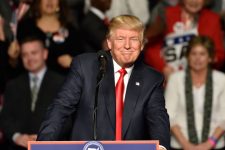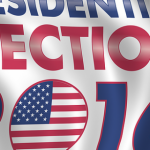The President’s Role in Shaping Crime Policy

The election of Donald Trump came at a time of widespread dissatisfaction with traditional politics and discontent with the perceived direction of the nation when it comes to both domestic and international policies, including criminal justice.
The tension between the movement towards diversionary and preventatives measures on the one hand, and the punitive approach of conservatives on the other, raises questions about the power of the president when it comes to dictating the direction of the criminal justice Sydney.
Filling prisons with non-violent offenders
One in every 100 adults in the United States is incarcerated, with two-thirds of released inmates returning to prison within two years.
The US spends around $80 billion per year on prisons, a figure that has quadrupled over the past 20 years.
And according to a 2014 Human Rights Watch report, the movement towards punitive laws since the 1980s have resulted in US prisons being filled with non-violent offenders. Just over half (53.4%) of inmates in state and federal facilities with a sentence of more than a year are non-violent offenders, many of whom have been convicted of minor drug offences. The figure is even higher for those sentenced to terms of under a year.
A study by the Urban Institute found that the increase in sentence lengths for federal drug offenders “was the single greatest contributor to growth in the federal prison population between 1998 and 2010.”
The intended solution
The criminal justice reform movement seeks to reduce the US prison population by moving towards a model which focuses on prevention (addressing the root causes of crime), diversion (directing low-level offenders away from full time imprisonment) and rehabilitation (eg assisting those who are incarcerated to break the crime cycle).
Among other things, these non-punitive models re-direct investment away from punitive policing and imprisonment, and towards community-based programs which aim to address the underlying causes of crime such as poverty, lack of housing and employment, mental health and drug and alcohol programs etc, as well as create a framework whereby low-level offenders can be directed into such interventions rather than simply thrown into prison.
The US Democrats, through president Obama, sought to adopt a number of preventative and diversionary initiatives – including removing mandatory minimum sentences for non-violent drug offenders, moving towards drug decriminalisation and greater funding for community programs.
Indeed, several US Republicans came to support such initiatives on both social and economic grounds, recognising that investing into such programs produces better results than mass incarceration.
Enter Donald Trump
Mr Trump has consistently supported tougher law enforcement strategies. In his nominating speech at the RNC in July, he slammed “this administration’s rollback of criminal enforcement”.
Trump supports greater police powers – including the power to arbitrarily frisk-search individuals without a warrant or any suspicion of wrongdoing. He is in favour of zero-tolerance law enforcement policies (including for non-violent drug offences and other crimes), private prisons, the death penalty, mandatory minimum sentences (including ‘three strikes’ laws) and increased maximum prison sentences.
These policies add billions of dollars every year to the cost of the criminal justice system, and contribute to court delays and prison overcrowding.
The role of the President
While the American constitution gives each state a degree of autonomy, a recent letter in the Harvard Law Review by outgoing President Barack Obama outlines the power of the president to shape criminal justice policy
- Influencing Congress
While Congress is now controlled by the Republican Party, the majority of politicians continue to recognise the problems faced by the justice system and support some level of reform.
Many Republicans recognise that prisons are a waste of taxpayer money, providing an opportunity for make change.
President Obama was able to mobilise this majority to introduce reform legislation such as the Senate Reform and Corrections Act of 2015, which reduced mandatory minimum sentences for non-violent drug offenders, and provided an incentive for inmates to have their sentences slashed by engaging in rehabilitation programs.
There are concerns Trump will go down a completely different path, and that his strong personality and influence on Republicans will stifle criminal justice reform, or even move the country in the opposite direction with his introduction and promotion of foreshadowed punitive measures.
- As the executive
The final years of Obama’s presidency saw the introduction of initiatives such as ending private federal prisons, due to their costs and failure to compete with public prisons on reducing reoffending rates.
As the executive, Obama worked with the Department of Justice to end contracts with private prisons while ensuring that all prisons improved safety standards and placed a greater emphasis on rehabilitation and education programs.
Other measures have included a rule to ‘ban the box’- prohibiting federal agencies from asking questions about criminal and credit history of applicants.
Again, the concern is that Trump will put an end to such initiatives and implement measure which lead to a further increase in the prison population and continue to stigmatise those who have served their time, making it harder for them to become gainful members of society.
- Exclusive powers
The President has the power to remedy individual cases of injustice, unimpeded by congressional limits.
By the end of his presidency on 20 January 2017, Obama exercised his clemency power to free 1,927 individuals convicted of federal crimes.
Most of these people had been convicted of non-violent drug offences and received lengthy mandatory prison sentences.
There is little hope the new president will use this power to remedy injustice.
- Criminological research
The Obama administration was proactive in funding research into criminological research, which produced recommendations on effecting change.
That research was instrumental in the formulation and implementation of measures designed to address the root causes of crime and to address the nation’s incarceration problem.
There are fears the new president will place little importance on these programs, cutting funding and instead spending more on punitive measures such as law enforcement and incarceration.
Only time will tell how Mr Trump uses his position to influence the direction of criminal justice, but if his first weeks in office are anything to go by, he will be making a concerted effort to identify, target and persecute perceived enemies, much like previous administrations have done with their failed war against drugs.







